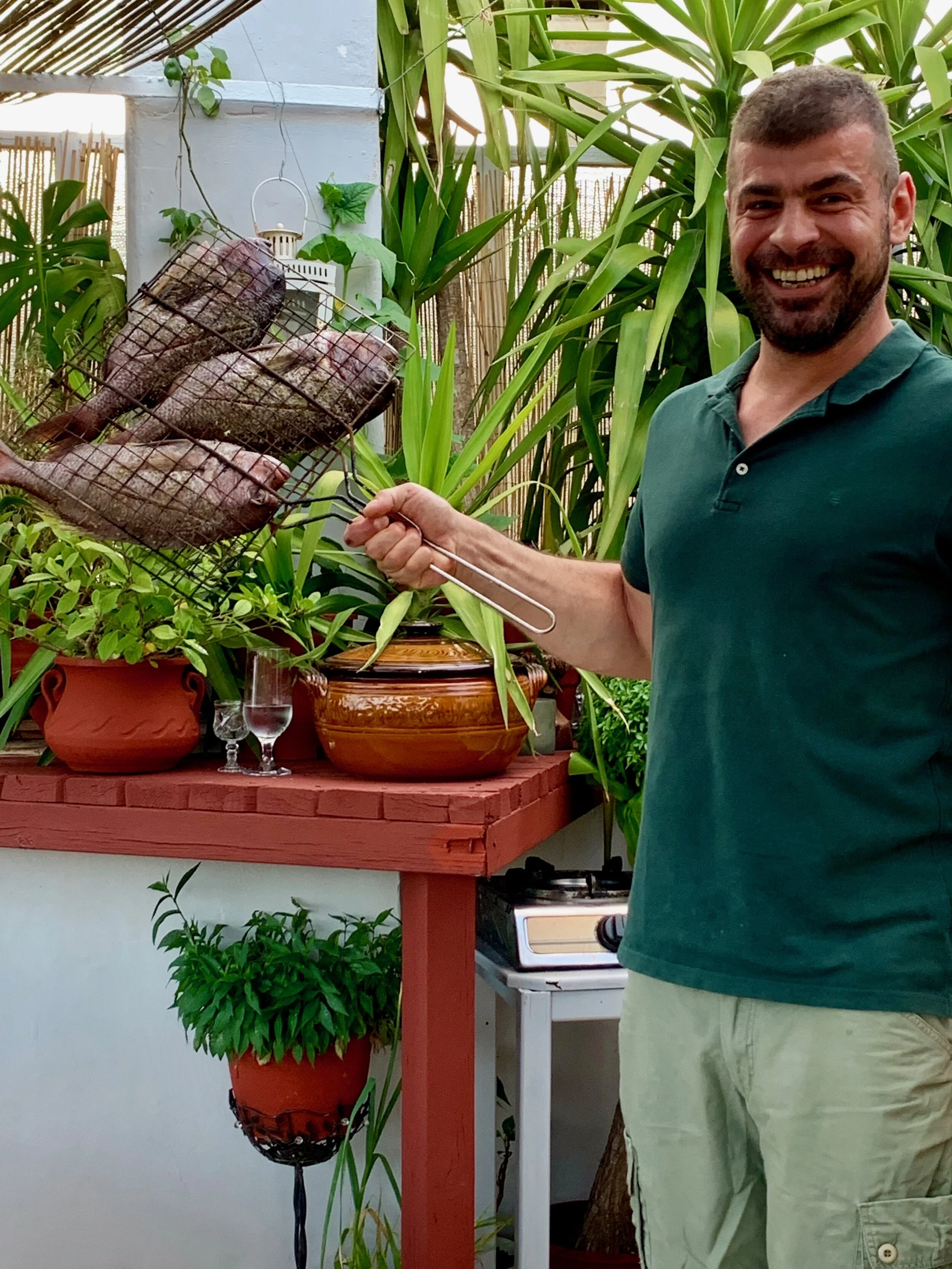1. Get off the beaten path. Sure, the Eiffel Tour is beautiful, and you’d certainly be remiss if you didn’t acknowledge that the tourist traps are famous for a reason, but don’t make the mistake of hitting only the highlights. The real beauty of a place comes in the unexpected surprises that come with a little risk taking—crawling to the bottom of an Egyptian tomb, an evening of Bohemian Rhapsody under the stars with local Mykonians, playing in a local jazz club in the Parisian underground, rolling cigars with a German-speaking Cuban national, and scurrying through hidden passageways in Dubai to buy knock-off watches and handbags aren’t exactly what you had in mind when you were planning your trip, but these are grout that cement and shape your experience into place. Sure, these moments aren’t instagrammable, and your watch might say Bowflex instead of Rolex, but they aren’t cookie-cutter prefabricated dime a dozen experiences. No, these are the raw revelations that can show both a city’s charm and underbelly in ways that are hard to forget.
2. People are generally the same. Sure, they may look different, speak different languages, and god-forbid, vote for a different political party than you, but deep down we all want the same things—to live peacefully, to provide for our families, to be proud of where we come from, and to belong to something. The more people you meet, the more undeniable it is that the barriers that separate us are figments of our imagination.
3. Ask the hard questions. It was over a vegetarian meal in Munich, with a friend of a friend, and coincidentally a Green Party Politician, that we found ourselves tiptoeing around political correctness and thanking our hosts for the amazing meal when her husband blurts out, “Well, I didn’t really want you to come if we are being honest.” What followed was a surprisingly refreshing, albeit straightforward, discussion about misconceptions we all had of each other as Americans and Germans. We left with an incredibly different understanding of one another than we would’ve had without such an incredibly German conversation starter.
4. Home is where the heart is, and no, not your own home. Anthony Bourdain taught us the importance of sharing a meal in someone’s home. When you’re home, your guard is down—conversation flows more naturally in a safe space. If you stick to restaurants, you miss spontaneous living room concerts, Icelandic local handicrafts, and cute little granddaughters teaching you “the floss.” Go out of your way to find opportunities to organically connect. You never know what you’ll uncover. I wouldn’t have found out about the award winning French film “Three Colors: Blue” if it hadn’t been for the movie poster hanging in Giampaolo’s tiny half-bath—I also wouldn’t have met the winner of Top Chef Sweden if it weren’t for taking a risk on an invitation to dinner with a new acquaintance in Milan. When an opportunity presents itself to meet people where they are their most comfortable—jump on it.
5. Travel is not a luxury. There was a time that travel felt like a privilege for the elite. Maybe it feels that way for you still. But the truth the way I see it is, travel is a responsibility and a constant opportunity to learn. It’s an eye-opening lesson in empathy to be the foreigner for a change—to be required to cover your tattoos in a mosque or your shoulders in a cathedral, and to discover just how handicapping it feels to have to have the menu read to you like a child because not everyone caters to English speakers, are all humbling experiences—experiences that make you much more tolerant. Collect the beautiful things you see, learn from the struggles, and bring them all back home and put them into practice.








